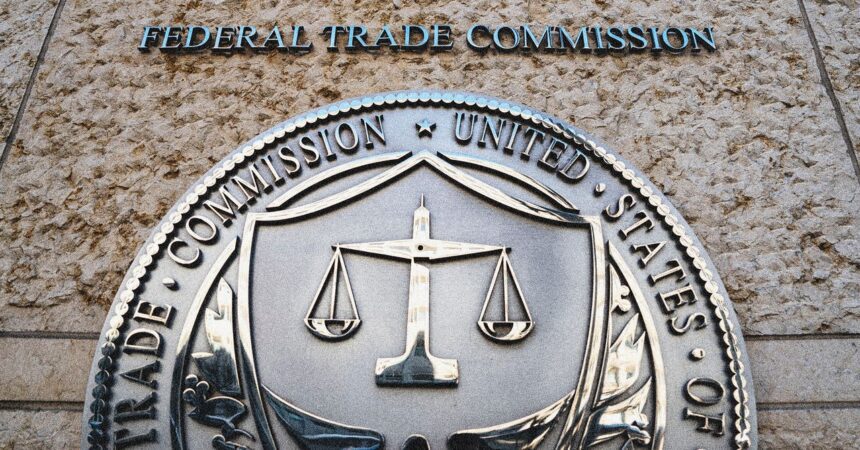The Federal Trade Commission (FTC) under the Trump administration has removed a collection of business guidance blogs accumulated over four years as of Tuesday morning. This purge includes essential consumer protection resources concerning artificial intelligence and the FTC’s significant privacy enforcement actions led by former chair Lina Khan against major companies such as Amazon and Microsoft. Over 300 blogs were taken down.
According to reports from current and former FTC employees, who requested anonymity for fear of backlash, the section of the FTC’s website that previously hosted guidance and business-related blogs has deleted all entries published during President Joe Biden’s administration. These resources provided counsel to large technology firms on how to stay compliant with consumer protection laws.
One removed entry, titled “Hey, Alexa! What are you doing with my data?” detailed how both Amazon and its Ring security devices allegedly used sensitive customer data to refine the company’s algorithms, as outlined in two FTC complaints (Amazon contested the FTC’s allegations). It also included recommendations for other businesses with analogous products and services. Another deleted post, called “$20 million FTC settlement addresses Microsoft Xbox illegal collection of kids’ data: A game changer for COPPA compliance,” guided tech firms on adhering to the Children’s Online Privacy Protection Act (COPPA) by referring to the recent Microsoft settlement stemming from accusations that the company collected data from children via Xbox systems without obtaining parental consent.
“By removing this content, they are essentially attempting to erase our compliance expectations from history, which arguably is one of the key facets of enforcement action,” shared a source familiar with the situation to WIRED.
Another blog that was removed, titled “The Luring Test: AI and the engineering of consumer trust,” discussed how businesses could prevent the development of chatbots that might infringe upon the FTC Act’s prohibitions against unfair or deceptive practices. This particular entry won an award in 2023 for its exemplary insights regarding artificial intelligence.
The Trump administration has garnered significant backing from the tech sector. Major tech giants like Amazon and Meta, along with tech entrepreneurs such as OpenAI CEO Sam Altman, contributed to Trump’s inaugural fund. Other influential figures in Silicon Valley, including Elon Musk and David Sacks, are formally advising the administration. Musk’s so-called Department of Government Efficiency (DOGE) employs technologists sourced from his various tech enterprises. Furthermore, federal agencies like the General Services Administration have begun implementing AI initiatives like GSAi, a chatbot designed for government use.
The FTC has yet to respond to WIRED’s request for comment.
The removal of these blogs raises critical compliance issues under the Federal Records Act and the Open Government Data Act, according to a former FTC official who spoke with WIRED. During Biden’s presidency, the FTC leadership opted to place “warning” labels over public decisions made by previous administrations that they disagreed with, fearing that outright removal could breach legal requirements.
Since President Trump appointed Andrew Ferguson to succeed Khan as the FTC chair in January, the Republican leader has promised to utilize his powers to target large tech firms. However, unlike Khan, Ferguson’s criticisms predominantly focus on the Republican party’s long-standing claims that social media platforms, including Facebook and Instagram, suppress conservative viewpoints online. Prior to his appointment, Ferguson conveyed to Trump his intention for the agency to rollback Biden-era regulations on artificial intelligence and tighten merger criteria, as reported by the New York Times in December.
In a recent interview with CNBC, Ferguson suggested that content moderation might constitute an antitrust issue. “If companies are diminishing their product quality by removing users for holding certain opinions, that could signal a competitive problem,” he stated.
Sources speaking with WIRED on Tuesday indicated that the only entities benefiting from the eradication of these blogs are the tech companies themselves.
“They are making a lot of noise about censorship. But ultimately, what truly impacts these companies’ bottom lines is what data they can gather, how they can utilize that data, whether they can train their AI systems on that data, and if this administration intends to ease up on that front while intensifying its focus on censorship,” a knowledgeable source speculated. “This is a scenario that would likely please big tech considerably.”










